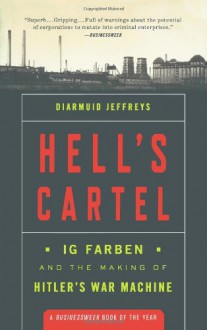
Adolf Hitler stands today as the First World War’s most famous enlisted man. This is not just a consequence of his subsequent role as the Fuhrer of the Third Reich, but because Hitler founded his political career on his experiences during the war, asserting that it was his service in it which shaped his beliefs and drew him into politics. Numerous biographers have seconded his claim by presenting his time in the trenches as the catalyst for the radicalization of an artist of previously vague political opinions. But is it true?
To answer this question, Thomas Weber looks in detail at Hitler’s service as a soldier in the 16th Bavarian Reserve Infantry Regiment (RIR), commonly known as the List Regiment after its first commander, Julius von List. Initially consisting of recruits from Munich and its surrounding countryside, it was the unit in which Hitler served from his enlistment at the start of the war until he was mustered out at the end of it. With Hitler’s own thin documentary record from this period having been exploited thoroughly by other biographers, Weber turns instead to a previously unutilized resource: the records of the regiment itself. This makes the bulk of his book as much a history of the List Regiment as it is an account of Hitler’s service from it, as Weber infers liberally from it in drawing his conclusions about his subject.
As part of this effort, Weber addresses a number of misconceptions that emerged about Hitler’s service. Foremost among them is his rank: Weber notes early on that Hitler’s promotion in 1914 was not to the rank of corporal or lance corporal but to Gefreiter, which was still within the rank of private. Indeed, Hitler was never at a rank or a position of command, as he preferred to remain a dispatch runner for the duration of the war. While Weber notes that these runners often took risks that required considerable bravery, he dismisses much of Hitler’s reputation on this score as exaggerated. As a regimental runner, he faced fewer hazards than runners at the battalion or company level, who spent far more time at the front and were more exposed to the dangers of trench warfare as a result.
This underscores one of Weber’s key points in this book, which is Hitler’s detachment from the experiences of most of the others in his regiment. As a regimental dispatch runner, Hitler was exposed far more often to the officers at the regimental headquarters behind the lines than he was to the men fighting in the trenches. Because of this, he was insulated from the growing disaffection the rest of the men of the 16th RIR, whose morale eroded steadily over the course of the war. Weber sees this as a key factor in Hitler’s embrace of the “stab in the back” myth after the war, as he never appreciated the depths of his comrades’ discontent with the war and their desire to be done with it.
Weber’s account of the List Regiment and Hitler’s service in it takes up three-fifths of the book, with the rest of it taken up with an extended exploration of the veterans’ postwar experiences and their reaction to Hitler’s rise. He is particularly good at detailing how Hitler and the Nazis exploited his wartime service (especially his Iron Cross, which Weber notes was more likely awarded to Hitler because of his proximity to the officers in a position to make such recommendations rather than any especially distinguished example of heroism) and the lengths they went to defend his portrayal of it against any criticism. Weber also details their varied responses to the Nazis’ antisemitism, which he describes to buttress his central argument that Hitler’s radicalization was not born of his service in the war, but a reaction to Germany’s treatment in its aftermath.
With its extensive research and careful debunking of the legends that have developed around Hitler’s First World War service, Weber’s book is a masterpiece of scholarship. Yet his writing suffers from repetition, particularly with his reflexive seizure upon even the smallest details as proof of the validity of his main arguments. It makes for a book that is far more tendentious than it needs to be, as the quality of Weber’s research usually speaks for itself. Even for those uninterested in Hitler, Weber’s book serves as a fine regimental history, one that chronicles how the men in an otherwise unremarkable unit responded to the strain of a debilitating struggle.

 Log in with Facebook
Log in with Facebook 














